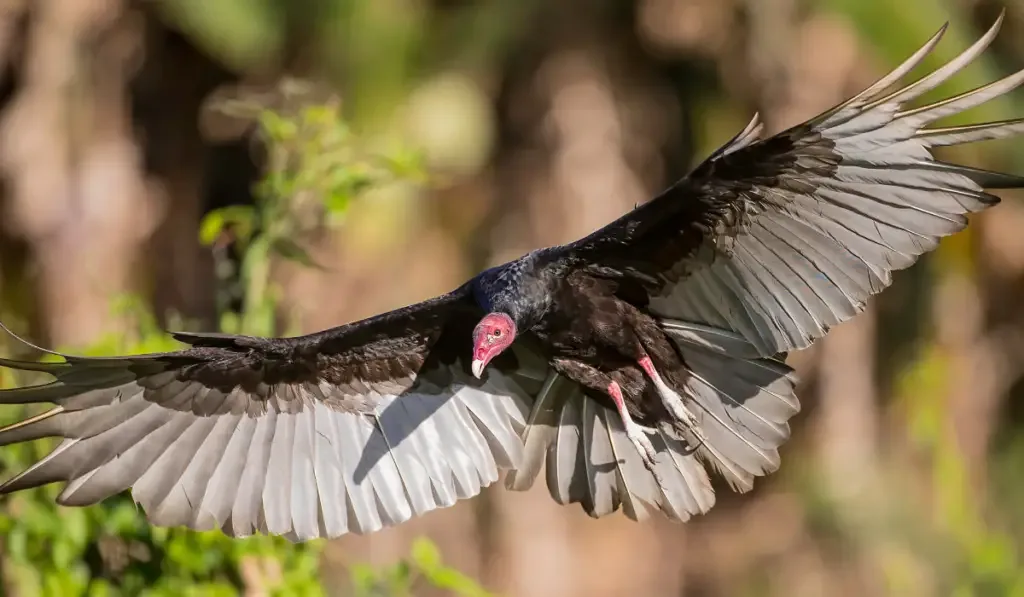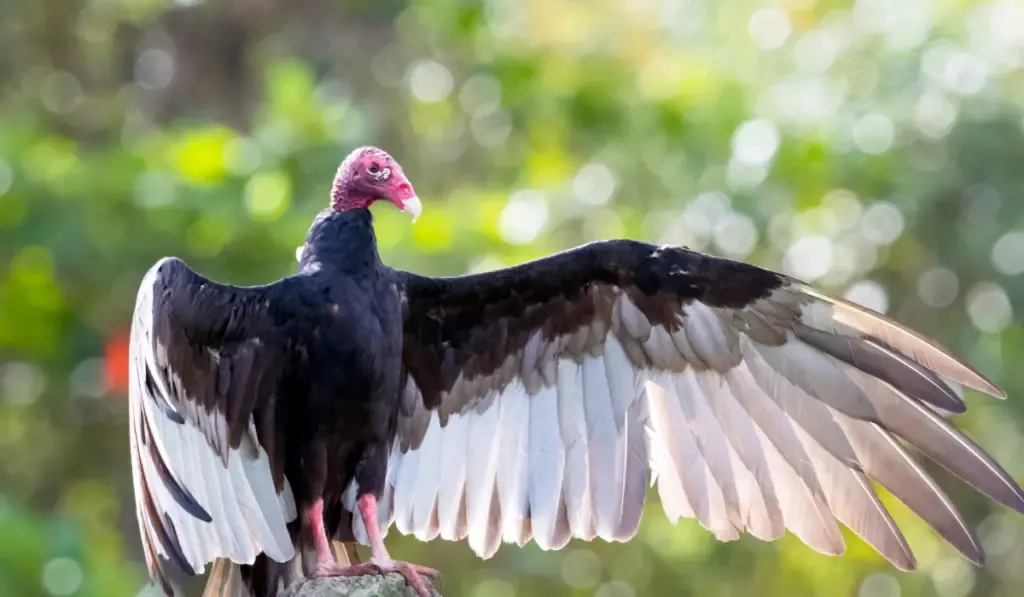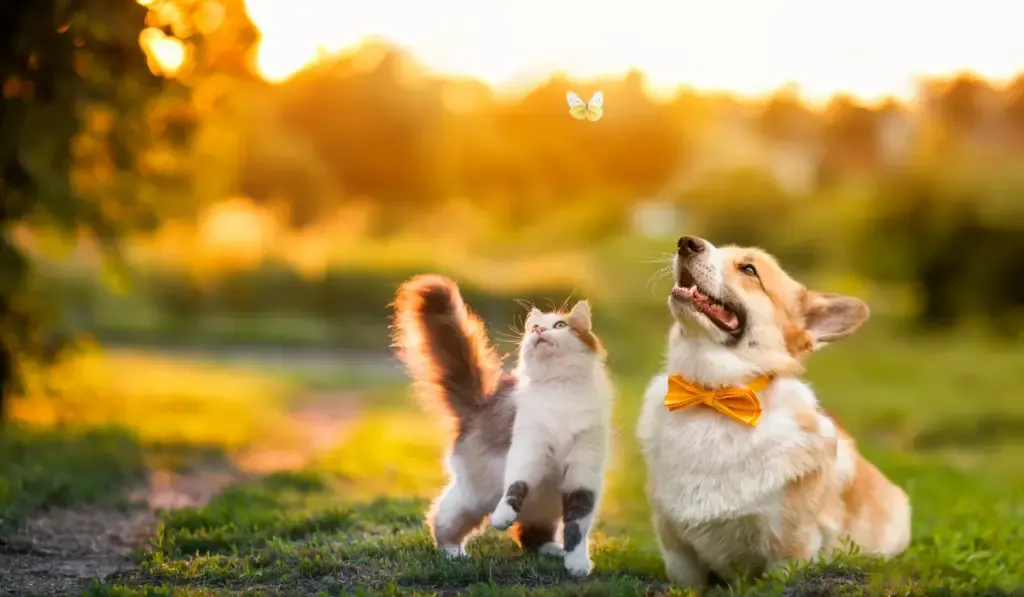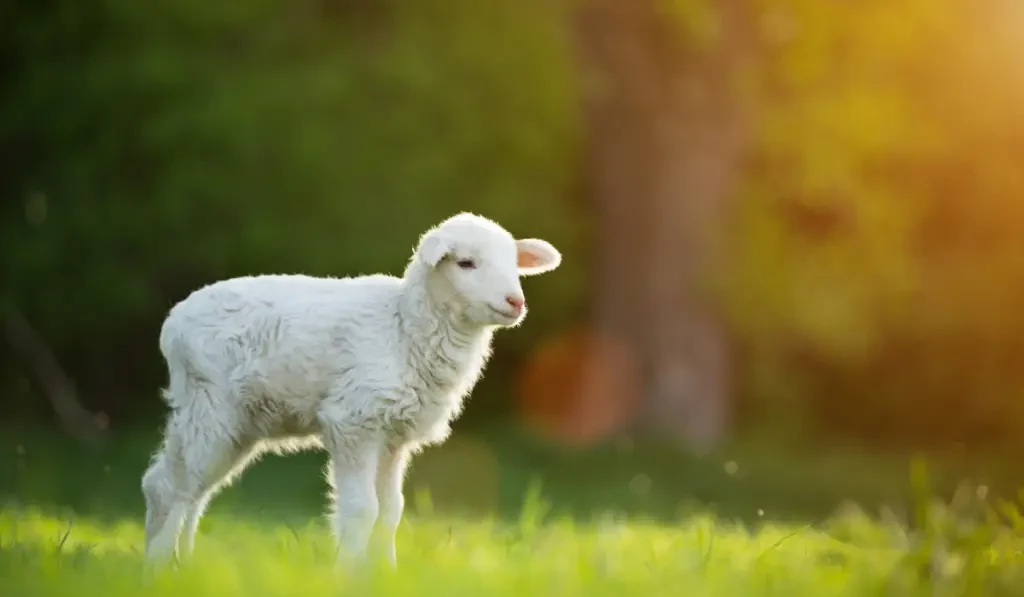Turkey vultures live in several areas in the U.S., and many pet owners worry when they see them circling above their yard or perched on a powerline nearby. They stress over whether the turkey vultures are sizing up their small cat or dog, and just waiting for the right time to swoop in and carry them off for their next meal.
The reality is that fears are often overblown. While seeing a turkey vulture up close or in the area can certainly cause a lot of anxiety, the chances that they will attack a small dog or something like a duck are fairly small. Most of the time, turkey vultures will only eat very small animals that aren’t moving a lot. They prefer easy targets.
If you’re worried about whether a turkey vulture will take down your pet, we’ve put together a list of animals and some information on if they are vulnerable to an attack.

Table of Contents
All About Turkey Vultures
North American turkey vultures have very poor eyesight. They only hunt during the day, and their vision limitations make them very picky when it comes to the food that they eat. They need to know that, when they swoop in, they have a high chance of success.
They’ll monitor their targets for a long time, and that’s why you see them circling for so long before they finally get the courage to go in.
They don’t, contrary to popular perception, enjoy eating rotten meat. They will wait a few days, though, after they catch something so it softens up and is easier to eat. Vultures can smell amazingly well, however, and they’re extremely perceptive of mercaptan, which is the gas bodies produce when they start to decay.
It’s like a calling card for vultures. Anytime you see several vultures circling in the sky, they’re probably monitoring a carcass or an animal that’s about to die.
Generally, turkey vultures aren’t aggressive birds, and won’t attack any animal that will put up a fight. People find them ominous because they have a six-foot wingspan and are quiet birds. A lot of people think they are spooky animals.

Will Turkey Vultures Attack Small Animals?
Turkey vultures are the most populous vultures in America. Their numbers are growing, too, so we’re seeing a lot more of them.
According to some news reports, farmers in certain states have seen turkey vultures attacking livestock. They land on them and start pecking at their hides. It’s definitely not commonplace for something like that to happen, but something to be aware of nonetheless.
Still, the odds of a vulture attack are low.
Pets Turkey Vultures Won’t attack
- Cats – Anyone who has owned a cat before knows that these animals are quite capable of defending themselves. Just try to get your cat into a carrier, the bath, or somewhere else it doesn’t want to go. You’ll probably have the marks to show for it for days.
Cats are expert hunters and are responsible for killing millions of birds every year. Even though a turkey vulture is a lot bigger than a cat, they know the risk of trying to eat a cat is way too high. A kitten might be at risk, though, so you may not want to leave a small kitten walking around your yard when vultures are around.

- Dogs – Dogs, even small dogs, can make a lot of noise when something’s up. If they see or smell a turkey vulture near, they’ll probably cause a lot of dust up by barking incessantly. That’s typically enough to deter any vulture attack.
- Chickens – Chickens are fairly vulnerable animal to many predators. It’s not out of the question for a turkey vulture to attack, but chickens move around a lot making them an unattractive target for turkey vultures because of their poor eyesight. They usually won’t go for chickens.
- Geese – Geese can be very aggressive birds, and they’re big enough for turkey vultures to want to avoid. It’s not something that they will want to mess with, and the geese are usually up for a good fight should the moment arise.
- Ducks – With ducks, you sort of get a mix of a chicken and geese as to why turkey vultures won’t attack. They are active animals that move around a lot, and they can fight back with their beaks and make a lot of noise when they feel threatened.
- Lambs – A lamb or a sheep would have to be in fairly rough shape for a turkey vulture to attack. They’re big enough for the turkey vulture to not attack when they’re in good health and moving around.

- Calves – Calves, like lambs, are a tall order for a hungry turkey vulture. For them, the chances of failure in trying to attack a calf are too great. There are also usually adult cows around that can become quite aggressive in defense of their young.
- Pigs – Pigs don’t have a lot of tools to defend themselves against claws and a sharp beak, but they are sturdy animals that can move fairly quickly and make a lot of noise when they need to.
Only the boldest of turkey vultures would attack a piglet, and the piglet would need to be in pretty bad shape for it to happen. Piglets run around a lot and aren’t all that attractive to vultures.
- Quail – You would think quail would be an easy target. They’re small and defenseless, and they run in packs so attacking in an area may yield you a kill just because there is more than one bird. However, quail are smart, and they are used to outmaneuvering their predators.
They’ll hide under trees or bushes whenever they see turkey vultures or any other predator bird around. Turkey vultures know how hard it is to catch a quail, so they will usually wait for something easier to come along.
Getting Rid of Turkey Vultures
If you see turkey vultures in your area and you’re worried about them attacking your pets, you can always take steps to keep them away.
Doing things like putting up scarecrows is always a good idea. You should also get rid of any roadkill you see in the area.
If you’re next to a busy street with dead squirrels or raccoons, then the birds will know that it is a target-rich environment. Cleaning up faster will send them looking elsewhere.
